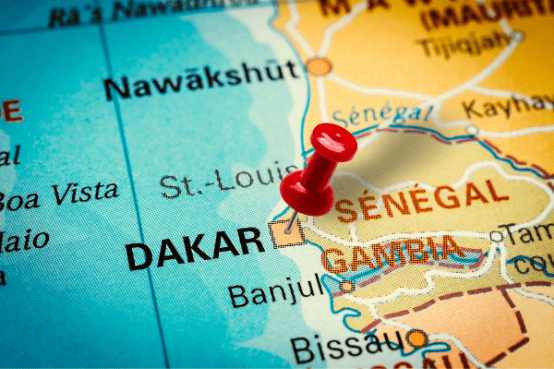
Africa Pushes Back on the Developed Countries Energy Solution
Through decades of direct investment, participatory business consulting, and our Africa mutual fund, our investment advisory firm FCA Corp has developed dedicated research and ongoing analysis on the African continent. There are key events in the development of the emerging African economies and their growing consumerism that we find important enough to spotlight and critique. The growing critical issues around energy and natural resources in Africa is one of them.
This month Senegal will host the MSGBC Oil, Gas, and Power 2021 conference, which will serve to “create a national platform for constructive dialogue on natural resource management, investment and initiatives for enhancing the productivity and sustainability of the current power matrix.” Many resource-rich West African countries are expected to participate, including Mauritania, the Gambia, Guinea-Bissau, and, of course, Senegal.
Overshadowing the conference will be darkening international sentiment toward fossil fuel usage in general. At the recent UN Climate Change Conference, COP26, world powers struck a deal to help fight climate change, including broad agreements to transition away from coal, reduce methane emissions, and curb deforestation. But perhaps the most important topic debated was the question of who should bear the brunt of climate change funding arriving at developed countries, who contributed the most to greenhouse gas emissions, or developing countries. For example, China and the US combine to produce over 18 gigatons of carbon dioxide annually, while all of sub-Saharan Africa produces only a little over 2 gigatons annually.
Caught in this debate is the question about whether developing countries, including those in Africa like Senegal, should have the right to use their own natural resources. Senegal, in particular, enjoys significant natural resources, including natural gas. The country has over one billion barrels of oil and over 40 trillion cubic feet of gas. The discovery of such significant energy reserves prompted many to speculate whether or not the country would fall into the “resource curse” that has impacted to many other African countries.
But with all of these resources available to the country, it would seem odd that over 5.1 million Senegalese today live without access to the electric grid. Indeed, many Senegalese and others across West Africa still lack adequate access to electricity that could seemingly be solved with resources that these countries themselves own.
But cooler attitudes toward fossil fuel development, as demonstrated by the COP26 conference, have raised the risk that these domestic sources of energy may not have the support for development, particularly from international oil and gas majors and capital markets. H.E. Macky Sall, the President of Senegal, has spoken extensively about the importance of natural gas to not only his country’s development, but that of Africa in general, and has warned against cutting off funding for natural gas production in particular.
As the MSGBC Oil, Gas, and Power 2021 conference gets underway, it is important to understand the broader context that many developing countries face with regard to their own economic growth. Natural gas is an obvious transition fuel that can simultaneously help pave the way for a greener future. And it can provide a needed source of energy to positively impact lives and be a steady source of revenue for the poorer countries that need it the most. Preventing the use of domestic sources of energy, like natural gas, by developing countries is not the answer. When such positions are exposed by those who enjoy the standard of living brought about by abundant energy to meet there every need, they sound a lot like they are embodying the historical French phrase “Qu’ils mangent de la brioche” – “Let them eat cake”.
The thoughts and opinions expressed in the above articles are solely those of the author. The discussion of individual companies should not be considered a recommendation of such companies by the Fund’s investment adviser. The discussion is designed to provide a reader with an understanding of how the Fund’s investment adviser manages the Fund’s portfolio.